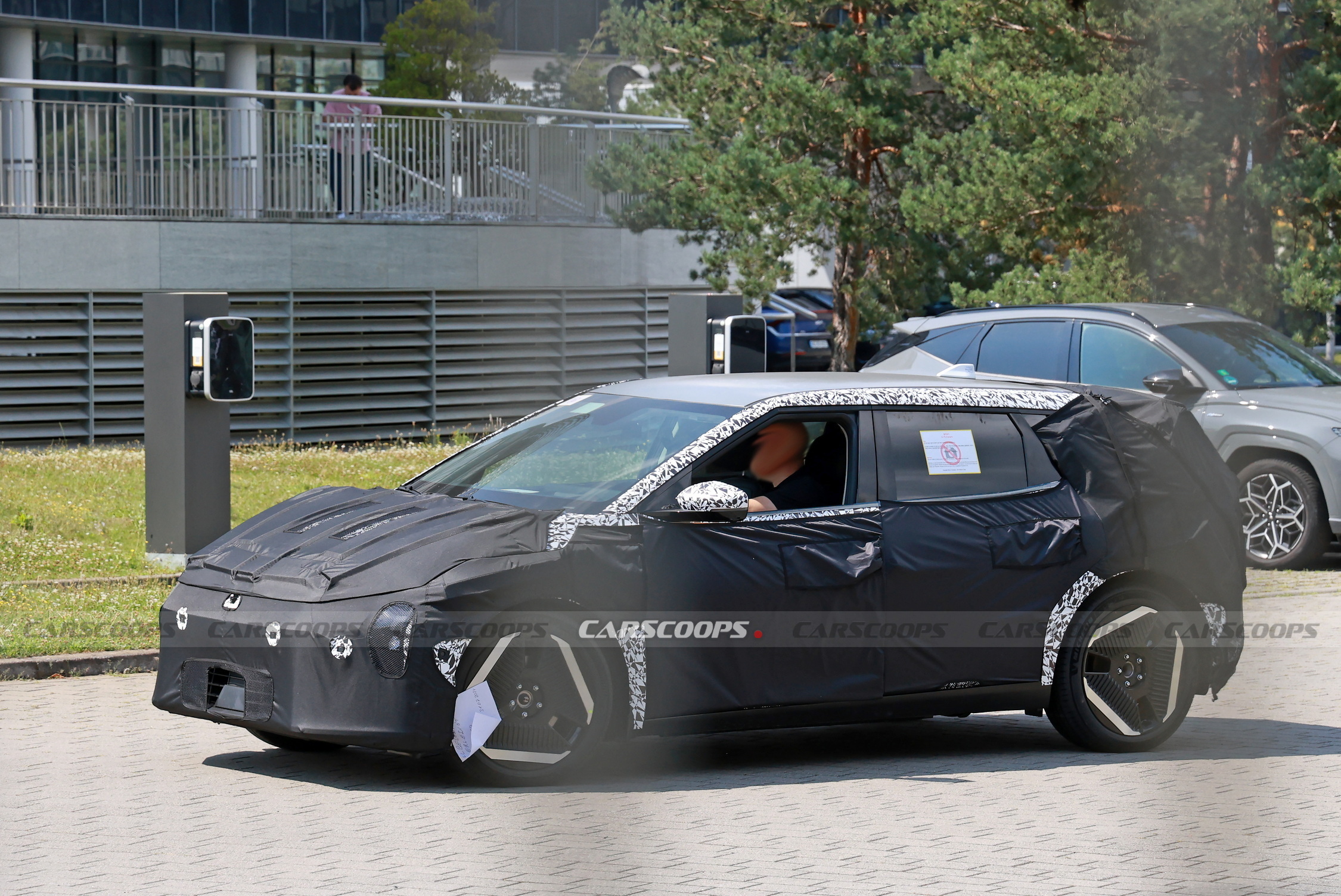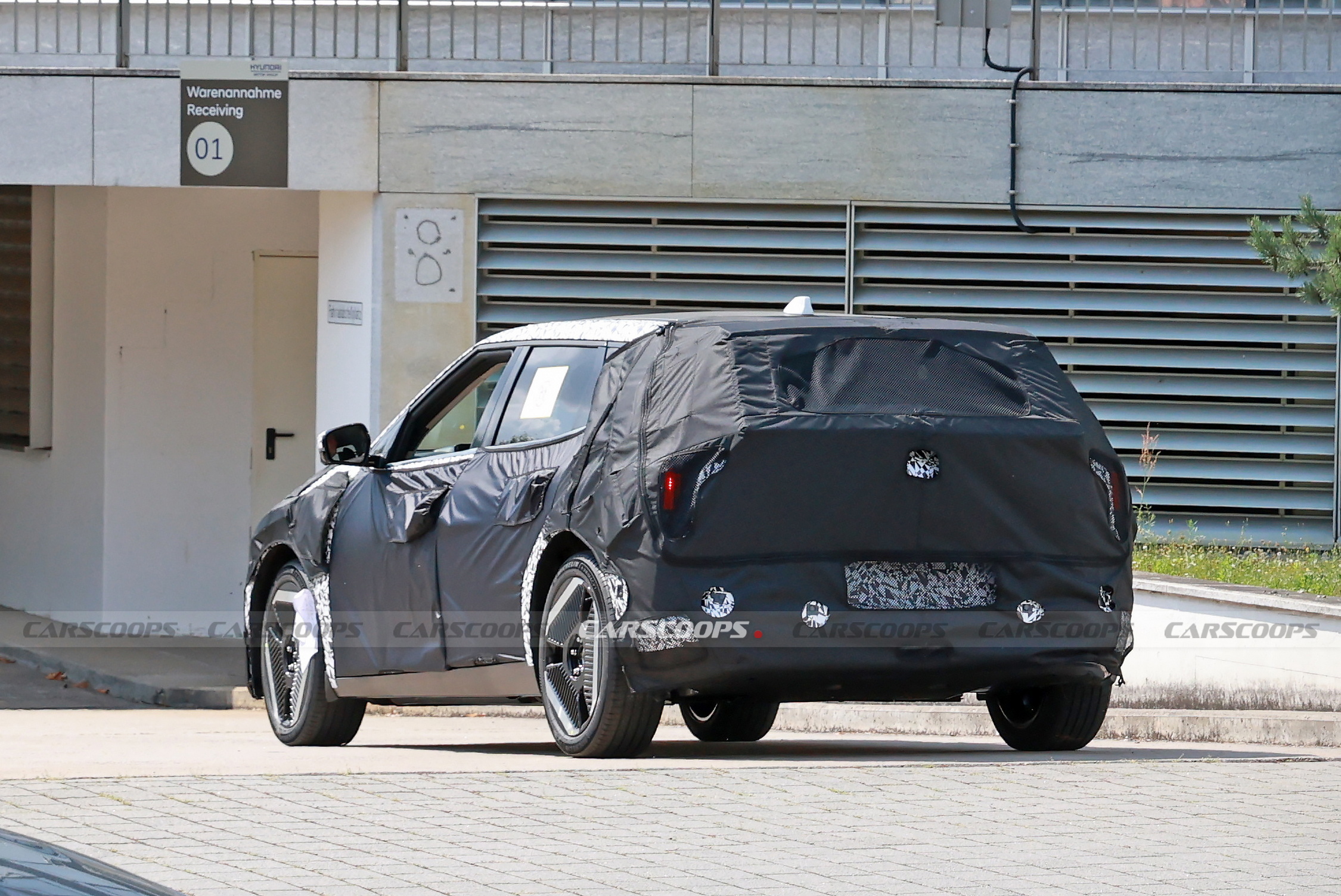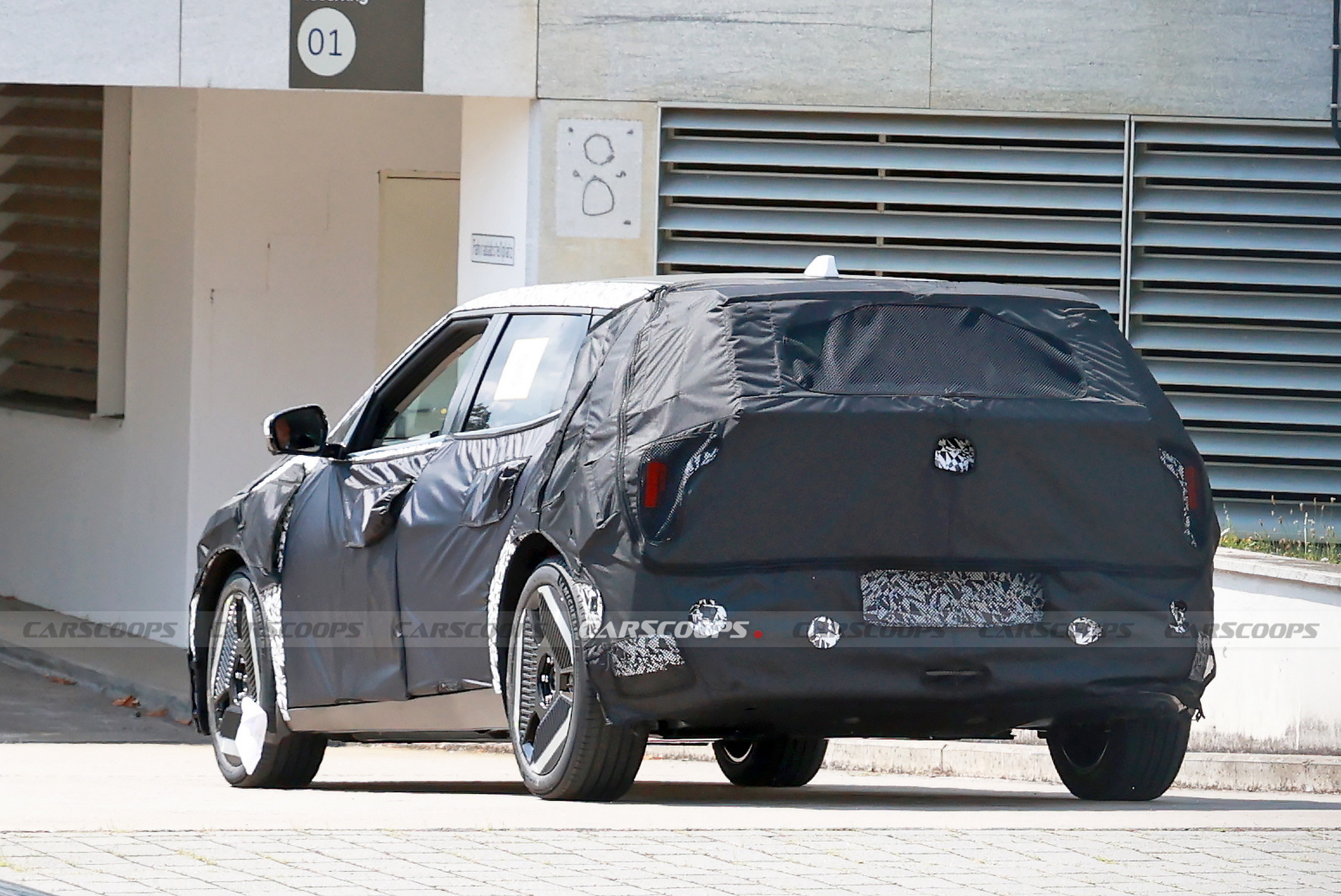- The Kia EV4 sedan will likely gain a crossover/hatchback twin.
- The new prototype appears to have a shorter tail, giving it EV6-style proportions.
- Both versions of the EV4 are expected to ride on the E-GMP architecture.
Kia appears to be working on a new bodystyle for the EV4 expected to launch in the market next year. The camouflaged prototype looks like a mixture of a hatchback and a crossover, sending Kia EV6 vibes.
The fully electric Kia EV4 follows the example of the similarly-sized ICE-powered K4, which also comes in sedan and hatchback forms. By offering different bodystyles for its upcoming EV, the company hopes to attract more buyers, covering a wider spectrum of the compact segment.
More: 2025 Kia K4 Injects Style Into The Humble Hatch
A few weeks earlier, our spy photographers spotted a prototype of the production-ready sedan, allowing for a side-by-side comparison. The new prototype retains an identical greenhouse and has a similar front end – although the latter remains hidden under heavy camouflage. What is different is the tail, featuring a notably shorter overhang.
This change alters the proportions, making the EV4 look more like a baby brother of the larger EV6.
Kia EV4 Hatchback – SH Proshots
With a shorter and more upright tail than the equivalent sedan, the Kia EV4 hatch/crossover could compete with models like the VW ID.3, and the more affordable MG4. The new electric Kia will also be the zero-emission alternative to the K4 hatchback, which is set to replace the outgoing Ceed.
The electric compact model is expected to share its E-GMP underpinnings with the EV4 sedan and the slightly smaller EV3 crossover. The latter is equipped with a single electric motor producing 201 hp (150 kW / 204 PS), and two battery options with a capacity of 58.3 kWh or 81.4 kWh. A more powerful dual-motor EV4 should be considered a given, as Kia has confirmed it will offer GT-branded versions of its entire electric lineup.
It remains to be seen if Kia will introduce the EV4 sedan and EV4 hatchback at the same time. In any case, we expect to learn more as we move closer to 2025.




























